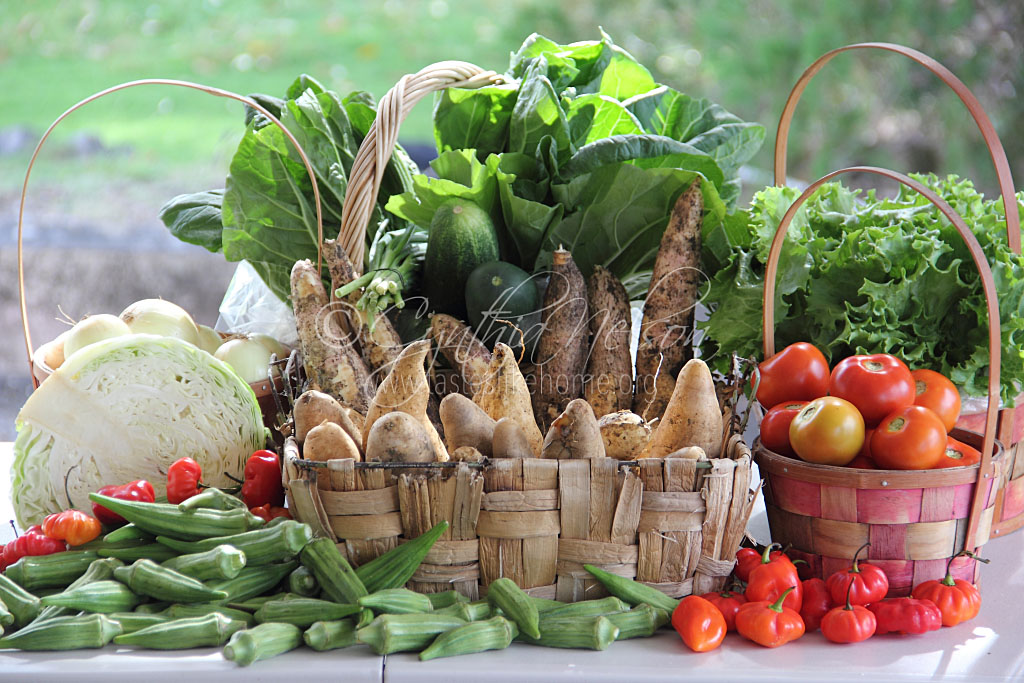 Here (in Barbados) we came out of our second lockdown about 2 weeks ago on Monday March 1. This time, although the lockdown was for a month, compared to the almost 4-month long lockdown last year, it felt different and was experienced differently in a variety of ways by many people, myself included. Last year, while we could go to the supermarkets, markets, minimarts, village shops, convenience stores and fish markets, albeit on an alphabetical system for a limited period of time – 4 hours on your designated, alphabetically-assigned days – it was not so with this second lockdown. The only places one could access groceries, fruits, vegetables and so on was at supermarkets Mondays to Fridays from 8 am to 4 pm. Selected minimarts across the island were allowed to open for the same period to service communities. However, markets were not allowed to open. No kind. None. And no street vending was allowed either. What I missed in this second lockdown was the lack of access to fresh fruits, vegetables and produce. I do not buy fruits, vegetables, ground provisions, eggs, poultry, fish or meat from supermarkets.
Here (in Barbados) we came out of our second lockdown about 2 weeks ago on Monday March 1. This time, although the lockdown was for a month, compared to the almost 4-month long lockdown last year, it felt different and was experienced differently in a variety of ways by many people, myself included. Last year, while we could go to the supermarkets, markets, minimarts, village shops, convenience stores and fish markets, albeit on an alphabetical system for a limited period of time – 4 hours on your designated, alphabetically-assigned days – it was not so with this second lockdown. The only places one could access groceries, fruits, vegetables and so on was at supermarkets Mondays to Fridays from 8 am to 4 pm. Selected minimarts across the island were allowed to open for the same period to service communities. However, markets were not allowed to open. No kind. None. And no street vending was allowed either. What I missed in this second lockdown was the lack of access to fresh fruits, vegetables and produce. I do not buy fruits, vegetables, ground provisions, eggs, poultry, fish or meat from supermarkets.
The week before the lockdown was announced, I doubled the amount of vegetables I’d usually buy, cooked and froze them. Initially, the lockdown was to be for 2 weeks. By the end of the first week, I figured that it was going be extended for another 2 weeks. Generally speaking, it did not bother me because the only thing I was going to run out of was vegetables. The strict stay-at-home mandate also meant that there was to be no delivery, drop off or pick-up of fruits, vegetables or produce from vendors, other than deliveries coming from supermarkets. But all was not lost; an acquaintance of mine put me on to vendor who was discreetly making deliveries. You’d get a list of the various items along with prices sent to WhatsApp; you’d place the order and pay upon delivery. At the end of the second week of lockdown, I placed an order for ochroes, bora, pak choi, tomatoes, onions, English potatoes, plantains, and a bag mixed fresh herbs.
My goodies arrived all neatly boxed up. As I carried the box to the kitchen I was already planning to cook fried bora with potatoes. The pak choi and ochroes would be fried separately; the tomatoes, were going to be made into salsa to have with my fried green plantains.
I missed the market. I opened the box, picked up the package with the bora and threw it away – all were dry and hard. The white stems of the pak choi were hard and brittle and the leaves were turning a light yellow; almost half of the ochroes were hard. Some of the potatoes were already sprouting and the onions, when squeezed were not firm. A couple of days later, when I cut into the tomatoes, more than half of them were dry. The plantains and bag of herbs were the best things. Oh, how I missed the market. For me, one of the pleasures of shopping at the market is that I can see what I am buying and check for quality before selecting.
At the start of the fourth week of lockdown I was able to purchase some callaloo and karaila from a friend who has a large kitchen garden and was sneaking out to deliver his homemade coconut oil to some of his regular customers.
Monday March 1 arrived, and the week seemed to stretch long to get to Saturday so that I could go to the market. I arrived at my usual time – 6.30 am. Vendors outside of the market along the sun-strewn pavement were setting up their stalls and unpacking produce. The inner market took another half hour to really get going because according to the mandate, markets are to operate from 8 am to 4 pm, however, vendors have to shut shop at 2 pm for the market to be cleaned and sanitized. And everyone has to organize themselves to get home before the 7 pm curfew.
Walking along the pavement of Cheap Side, I was so happy to see people plying their trade again even though there were not as many vendors as usual. The lockdown had a devastating impact on vendors because it meant that they had no way to earn an income for a month. The government has/had promised them money, but I believe that the bureaucracy of accessing it is/was prohibitive for many. Most of the vendors are not farmers, they buy from farms and farmers to sell, so having no income for such a long time while having living expenses and other financial commitments is bound to have repercussions on their ability to earn a livelihood.
There were many empty stalls on the inside of the market too.
In terms of availability of produce, there was a little of everything; lettuce, pak choi and local onions were in large supply. There was a steady flow of shoppers but definitely not the usual crowd. It is understandable that with community spread of the virus now present in Barbados, we are all being even more cautious.
It will take some getting used to shopping at the market again. There is a certain congregating that takes place in markets that the authorities are keen to prevent so every now and then you can see police personnel passing by to ensure we are following the distancing guidelines and not bunching up around stalls. Shopping took more time as we stood in lines at various stalls. We were all patient; it was good to be back at the market again. Over the next two weeks I hope to make it to meat section of the market and also to one of the fish markets. Markets are life.
Cynthia
cynthia@tasteslikehome.org






